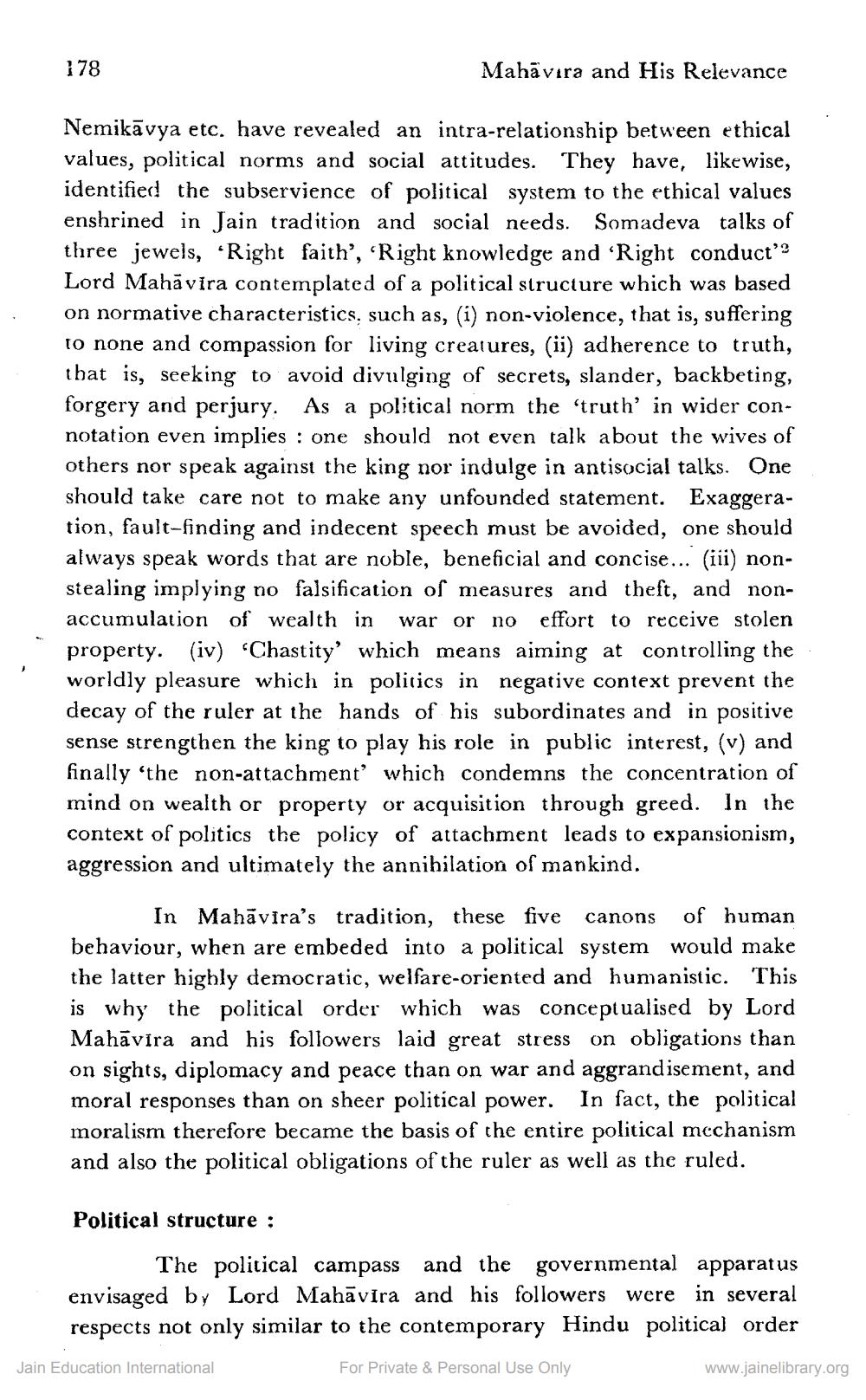________________
178
Mahāvıra and His Relevance
Nemikāvya etc. have revealed an intra-relationship between ethical values, political norms and social attitudes. They have, likewise, identified the subservience of political system to the ethical values
in Tain tradition and social needs. Somadeva talks of three jewels, 'Right faith', 'Right knowledge and Right conduct’ Lord Mahāvira contemplated of a political structure which was based on normative characteristics, such as, (i) non-violence, that is, suffering to none and compassion for living creatures, (ii) adherence to truth, that is, seeking to avoid divulging of secrets, slander, backbeting, forgery and perjury. As a political norm the 'truth' in wider connotation even implies : one should not even talk about the wives of others nor speak against the king nor indulge in antisocial talks. One should take care not to make any unfounded statement. Exaggeration, fault-finding and indecent speech must be avoided, one should always speak words that are noble, beneficial and concise... (iii) nonstealing implying no falsification of measures and theft, and nonaccumulation of wealth in war or no effort to receive stolen property. (iv) 'Chastity' which means aiming at controlling the worldly pleasure which in politics in negative context prevent the decay of the ruler at the hands of his subordinates and in positive sense strengthen the king to play his role in public interest, (v) and finally 'the non-attachment which condemns the concentration of mind on wealth or property or acquisition through greed. In the context of politics the policy of attachment leads to expansionism, aggression and ultimately the annihilation of mankind.
In Mahāvira's tradition, these five canons of human behaviour, when are embeded into a political system would make the latter highly democratic, welfare-oriented and humanistic. This is why the political order which was conceptualised by Lord Mahāvīra and his followers laid great stress on obligations than on sights, diplomacy and peace than on war and aggrandisement, and moral responses than on sheer political power. In fact, the political moralism therefore became the basis of the entire political mechanism and also the political obligations of the ruler as well as the ruled.
Political structure :
The political campass and the governmental apparatus envisaged by Lord Mahāvira and his followers were in several
respects not only similar to the contemporary Hindu political order Jain Education International For Private & Personal Use Only
www.jainelibrary.org




